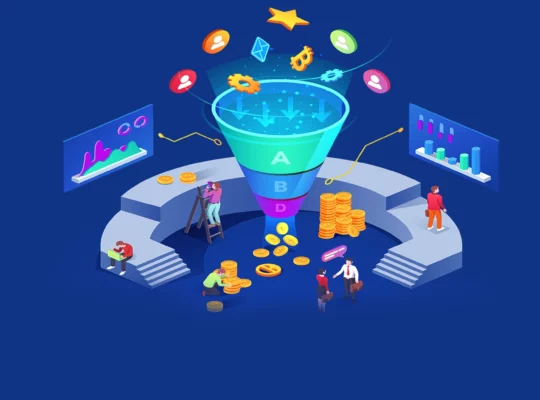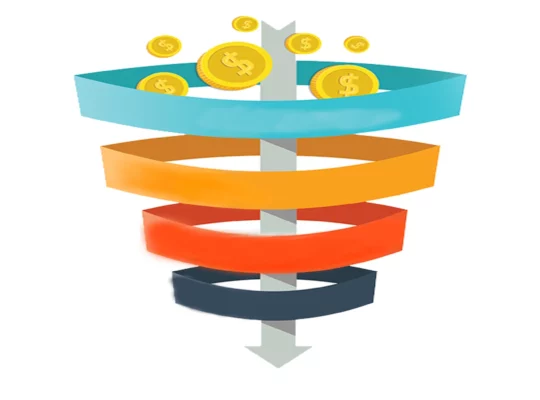Have you ever wondered what happens behind every click in the vast world of digital marketing? What transforms a simple viewer into an engaged customer? Welcome to the intriguing universe of digital marketing conversions.
Imagine this scenario: you’re browsing the web when you come across an irresistible offer or an eye-catching ad. What happens next? That, dear reader, is a “conversion”.
In this journey, we will discover together the deeper meaning of conversions, their importance in online success and how they can influence the growth of any business in the digital world. Get ready to dive into the exciting universe of conversions.
Follow us!
What are the Conversions?
Conversions in digital marketing are the crucial moments when a visitor moves from being a mere spectator to an active participant in the interaction with a brand. From a purchase to a subscription, each action reflects a change in the user’s status, transforming them from prospect to lead and finally to actual customer.
What Types of Conversions Are There?
A key aspect to keep in mind is that conversions are easily measurable, allowing you to evaluate the effectiveness of your strategies. Each action marks a milestone in the customer journey, taking them from a visitor to an engaged customer.
In digital marketing, there are two types of conversions: macro and micro.
- Macro conversions: represent core business goals, such as completing a sale or securing a service.
- Micro conversions: these are small steps that contribute to the fulfillment of your strategy’s objectives.
Macro conversions include transactions, ad clicks and lead generation. Meanwhile, micro conversions include actions such as file downloads, newsletter sign-ups, contact button clicks or phone calls.
These conversions, both macro and micro, are critical to understanding and optimizing the performance of your digital marketing strategy, allowing you to move towards achieving your business goals.

Why are Conversions Important for your Business?
Conversions are essential because they drive the profitability of your business. While the final sale is crucial, other conversions are also significant because they help you identify leads and guide them through the conversion funnel.
It is important to track conversions to understand your customers and evaluate the effectiveness of your tactics.
- Measuring Success: Conversion rate and the percentage of visitors who complete a desired action are key indicators of the success of your digital marketing strategies. These allow you to evaluate the effectiveness of your campaigns, website and content.
- Customer Insights: Conversions provide valuable insights into your customers’ behavior and preferences, allowing you to personalize and improve their experience.
- Qualified Lead Generation: Conversions not only lead to direct sales, but also help generate qualified leads. These leads are people who are interested in your products or services and are closer to becoming real customers.
To learn more about this important topic, “leads”, we invite you to read our article “Leads: Key Figures in Digital Marketing Success. What they are, what types there are and why they are important”.
- Increased Customer Confidence: When users make a conversion, whether it’s signing up for a newsletter or downloading a resource, they are demonstrating trust in your brand. These actions contribute to building a solid and lasting relationship with your customers.
- User Experience Optimization: Analyzing conversions also gives you valuable information about the user experience on your website, landing page or digital platform. You can identify areas for improvement and make adjustments to offer a smoother and more satisfying experience, which in turn can increase conversions in the future.

What are the Most Used Conversion Terms?
In the exciting world of digital marketing, we come across a wide range of terms that describe the various aspects of conversions. Here are the most commonly used ones:
- Conversion rate: conversion rate refers to the percentage of visitors who make a conversion upon seeing an offer or a call to action on your website.
- Conversion rate optimization: Conversion rate optimization refers to the optimization of your website so that more users generate conversions.
- Cost per conversion: The term cost per conversion refers to advertising and refers to the cost of advertising per the number of conversions that are made through that ad. The cost per conversion tries to measure how much you will have to pay for each conversion.
Conclusion
Conversions are much more than just metrics in the world of digital marketing. They are the core, the engine that drives online business success. They are the measure of success, providing valuable insights to improve strategies and understand your audience. By focusing on improving conversion rates, you are taking significant steps toward achieving your business goals and building strong relationships with your customers.
To optimize your conversions, you need effective strategies and a team of experts in areas such as web design, graphic design and digital marketing.
At DISSAU, we are here to help you achieve your conversion goals. With our multidisciplinary approach and experience, we can accompany you in your growth and improve your conversion rate.
Contact us today and take your business to the next level in the digital world!


















